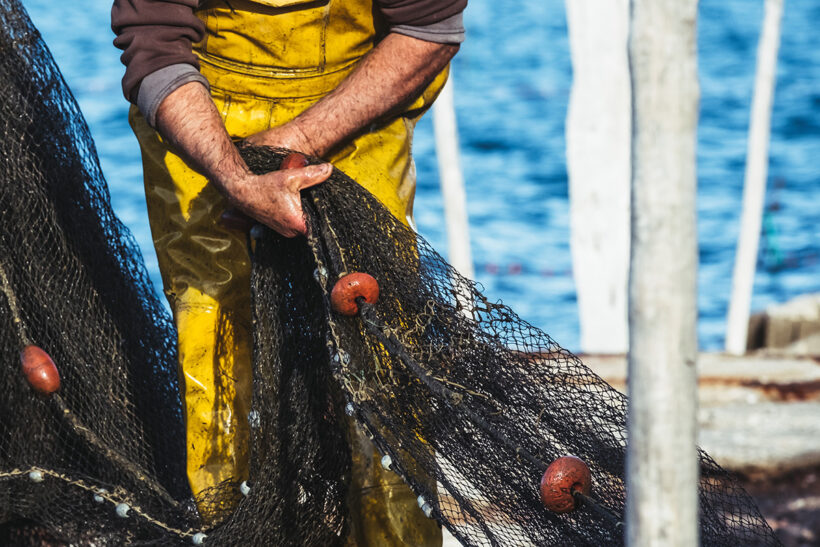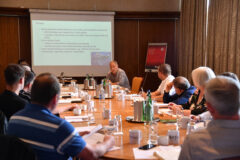Fishermen are being invited to attend a series of meetings, where they’ll be asked for their views about what is important to them, and what decision-makers need to consider when writing rules or developing policy, such as new health and safety rules. As well as helping to direct the next UK-wide survey of the fishing industry, you’ll be fed and paid for your time!
The Countryside and Community Research Institute (CCRI), based at the University of Gloucestershire, together with Fishing into the Future (FITF), which have been commissioned by Defra to develop a nationwide annual social survey of commercial fisheries, have already held a number of events in English ports to hear from fishermen about their priorities.
What’s behind this? In the Fisheries Act 2020 and Joint Fisheries Statement, the government highlighted the need to consider social data within policy-making decisions. A new robust social dataset would help policy-makers to develop policies and mechanisms that enable long-term social benefits from UK fisheries.
The survey will inform fisheries management decisions and collect data on issues such as health and wellbeing, cultural identity, community, livelihoods and attitudes. Defra is working with the devolved administrations to consider roll-out of the survey across the whole of the UK.
A number of discussions have already taken place with industry representatives, but the next stage is a series of workshops around England where the research team want to hear directly from fishermen.
Fishermen who come to the workshops will help design the survey through a series of question and answer sessions, developed to be as straightforward as possible. These will help to pinpoint the issues that are most important to working fishermen. The team visited Newlyn and Bridlington recently, with Wells next the Sea and Newhaven workshops scheduled for May.
For those who can’t attend these in-person workshops, the team will be organising online workshops – one on 9 May at 2.30pm for Scottish stakeholders, and one on 22 May at 2.30pm for stakeholders from England, Wales and Northern Ireland.
This project builds upon a previous project, completed in 2019, which examined the extent to which a new social survey of fishers could add to the existing evidence base used by decision-makers. This project identified that extra data on issues such socio-cultural impacts, fishermen’s health and wellbeing, and the impacts of external drivers would be helpful. The report from this project can be seen here.
Julie Urquhart, who is leading the current project, said: “It’s really important to work closely with fishermen to develop this annual survey, so that the data collected will have benefit for both the fishing industry and policy-makers.”
Emma Plotnek from FITF, which is supporting industry engagement, said: “We are excited to be involved in this work and support the industry-centred development of the survey.
“A number of the fishermen on our board of trustees are involved in the project, helping to co-ordinate and facilitate the workshops, offering local knowledge on suitable tides and times to hold meetings, and ensuring that when we meet in person, there’s a familiar face able to enhance the connection between the team of researchers and the local fishermen.”
More information about the project and details of how to register to attend the workshops can be found here or by contacting Nick Lewis of the CCRI at: nlewis@glos.ac.uk
Those attending the events will receive £150 remuneration for their time and input, and refreshments will be provided.
This story was taken from the latest issue of Fishing News. For more up-to-date and in-depth reports on the UK and Irish commercial fishing sector, subscribe to Fishing News here or buy the latest single issue for just £3.30 here.
Sign up to Fishing News’ FREE e-newsletter here.






